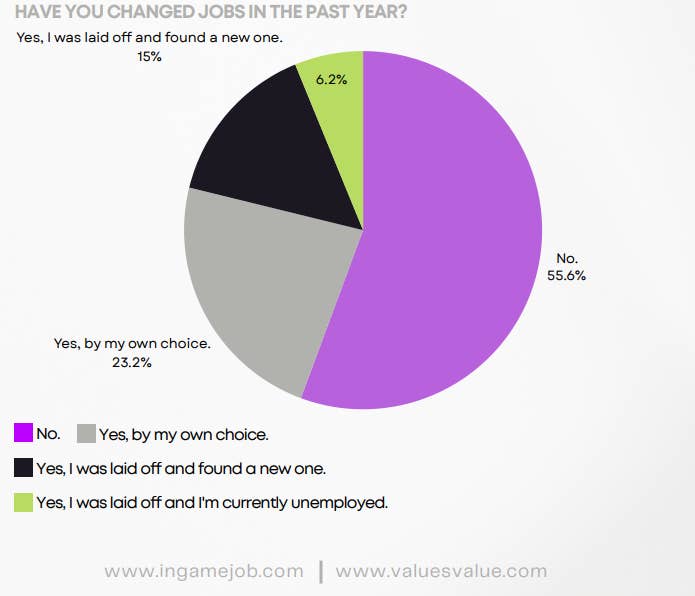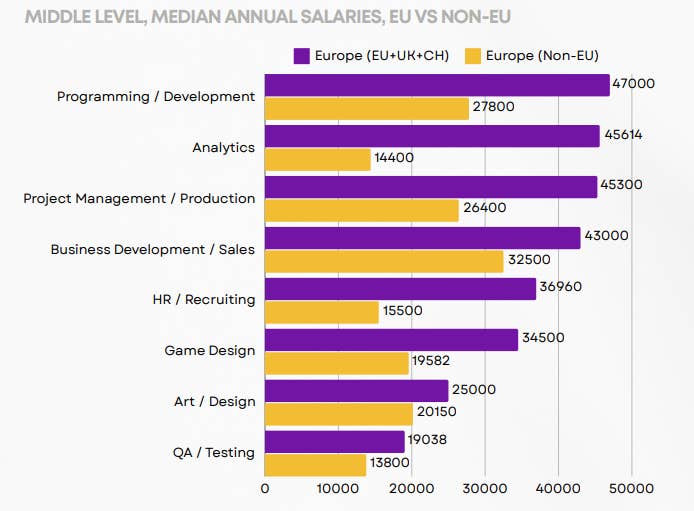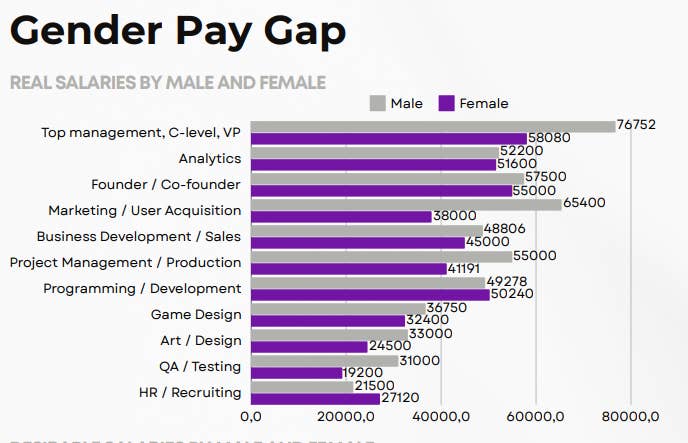Approximately 21% of professionals in the European gaming industry have faced layoffs over the last year
According to the 2023/2024 Big Games Industry Employment Survey, 15% of those working in the European gaming sector faced layoffs but managed to secure new employment. Additionally, 6.2% are still searching for opportunities. The survey, which is an annual initiative by recruitment agency Values Value and career platform InGame Job, also revealed that 10% of European games professionals switched to industries outside of gaming over the past year.
Certain roles in gaming studios, such as human resources, recruitment, quality assurance, and artistic positions, were more susceptible to layoffs in the region.

The survey also examined salary disparities across Europe, noting differences between EU and non-EU countries for various roles and seniority levels.
For middle-level positions in the gaming industry, the median salaries are provided in the following example, represented in gross annual Euros:

Overall, median salaries increased for most roles and levels in 2024, though HR and recruiting positions saw a decline. Tanja Loktionova, founder of Values Value and co-founder of InGame Job, noted significant salary reductions for senior HR roles, recruiters, QA specialists, mid-level business developers, and most junior positions. This trend is corroborated by data showing these roles were most impacted by recent layoffs.
The report also highlights a notable gender pay gap within the industry, as depicted in the accompanying graph:

Common reasons cited for job dissatisfaction included burnout, unprofessional management, and a poor work-life balance. Remote work remains prevalent, with 57% of EU companies and 75% of non-EU European countries adopting this model.
Furthermore, 54% of surveyed game developers reported using AI tools in their work and seeing them as beneficial, an increase from 37% in the previous year.
The survey, conducted from March to June 2024, covered over 50 European countries and included 1,832 participants. Of these, 58% identified as male, 24% as female, and 19% chose 'Other' or preferred not to disclose their gender. Participants' seniority levels were 9% junior, 29% middle, 30% senior, and 28% lead, with 19% having over a decade's experience in the industry.